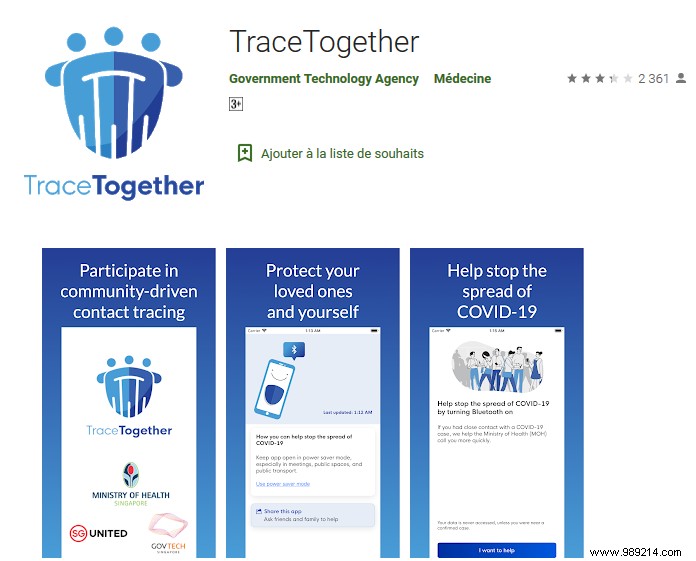As part of the fight against the Covid-19 epidemic, Singapore can boast of having been the first country to launch the tracking of the virus by smartphone . Until now on a voluntary basis, this tracing has now given way to another service that no longer leaves the choice to the population.
In France, deconfinement began on May 11, 2020 and the government plans to deploy an application called Stop-Covid from June 2. Before that, a testing phase will begin next week. The goal? Identify infected people around you in order to limit the spread of the virus by identifying chains of transmission. Rather controversial, this method of digital tracing is considered contrary to respect for freedom and privacy.
In several European countries, including Switzerland, the same observation. As the Swiss daily Le Temps explains in an article published on May 6, 2020, the Federal Council will have to debate within the framework of the launch of a similar application . Developed by the Federal Polytechnic School of Lausanne (EPFL), it could be deployed from the end of May.
The Swiss daily recalls that Singapore is the first country in the world to have implemented this type of tracking within the population. However, the situation has recently taken a new turn that European countries should observe with a magnifying glass.
At the end of March 2020, Singapore launched TraceTogether, an application offered voluntarily and anonymously. The latter is based on Bluetooth technology to determine if two individuals have been in close proximity to each other for more than 15 minutes. It should be noted in passing that this measure was accompanied by the closing of borders and the quarantine of travellers.

However, it seems that the population has no not follow the movement enough. According to the Singaporean authorities, only 20% of the 5.6 million inhabitants have downloaded and used TraceTogether. However, local scientists were hoping for a rate of around 60%, considered essential to stem the epidemic. Additionally, while Singapore's toll reports "only" 21,000 cases and 20 deaths, the city-state experienced a recent spike in cases.
In addition, the application is useless in certain areas of the city where overcrowding rhymes with promiscuity . We should also mention the fact that a good number of elderly people do not have a smartphone or, if necessary, do not know how to use it well.
Trust in technology has taken a turn for the worse, and some managers have found manual contact tracing irreplaceable. Nevertheless, the Prime Minister of Singapore chose to insist and launched a new system called SafeEntry . From now on, each time a citizen enters or leaves a public building, they must scan a QR code with their smartphone in order to register.
In addition to its mandatory nature, the system sends the complete data of the people (name, telephone number, location, etc.) to a central processing unit. Thus, volunteering and anonymity are no longer relevant with this system which should be extended on May 12 in businesses and other shopping centers.